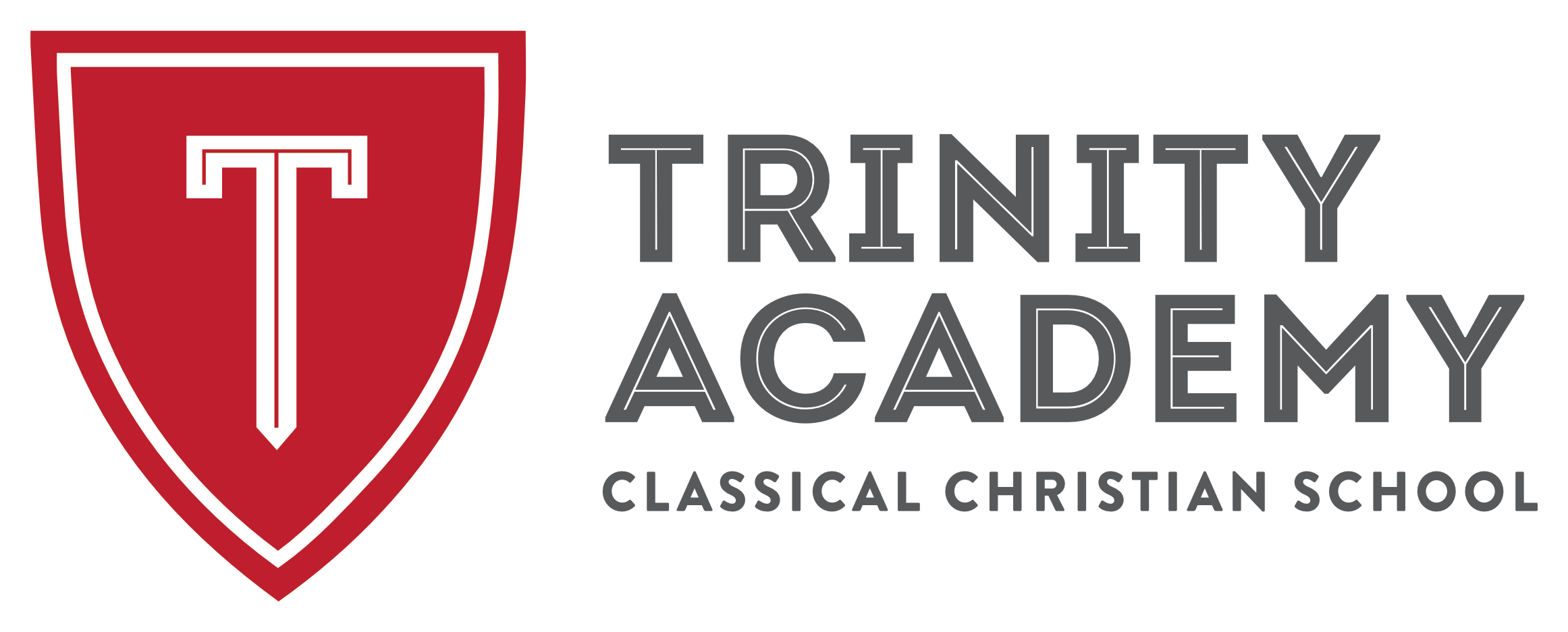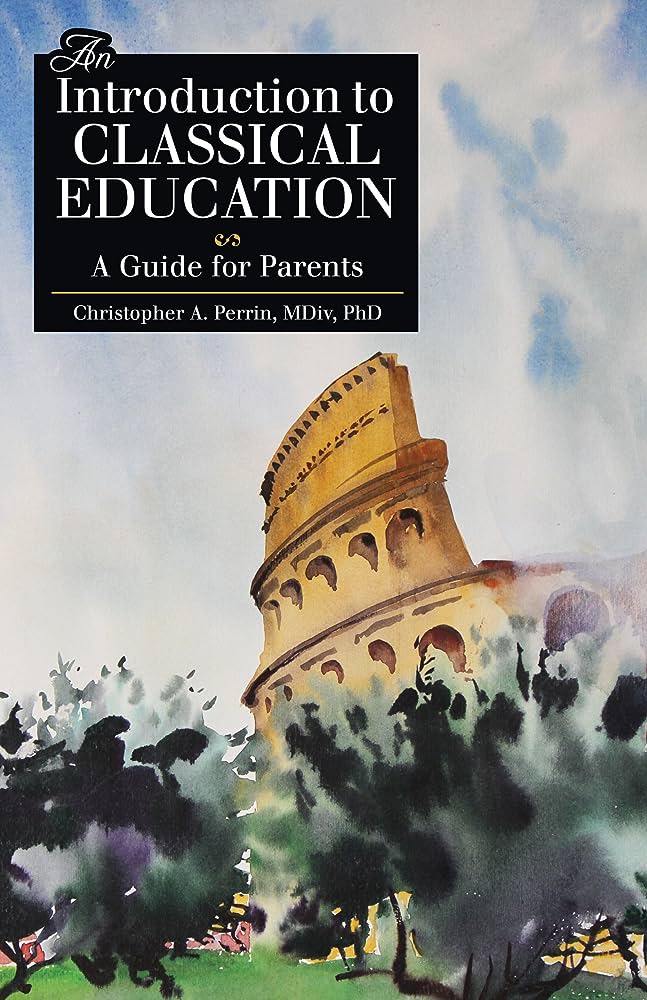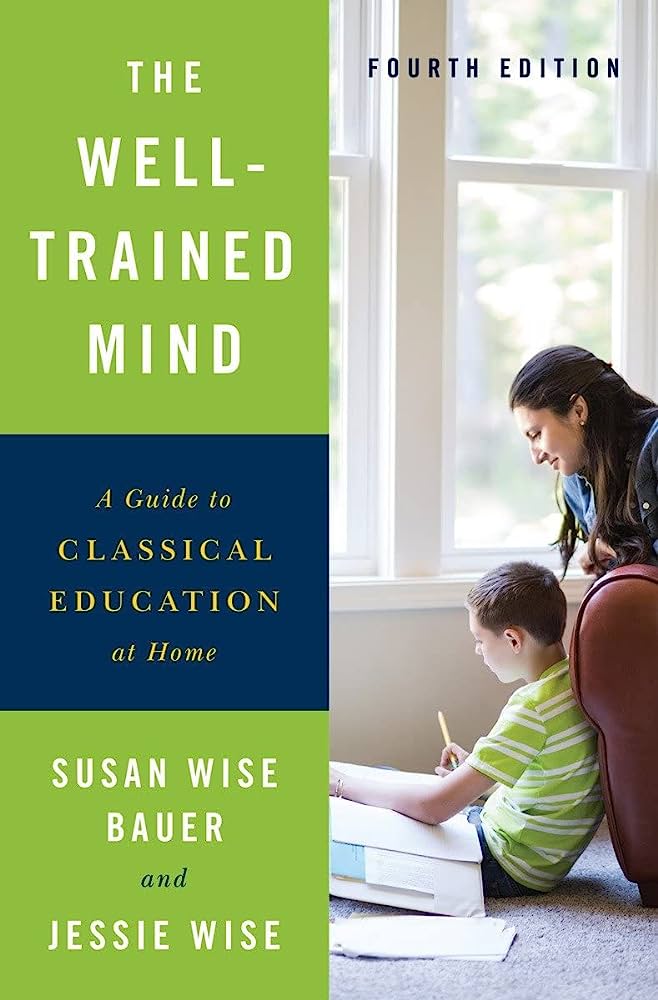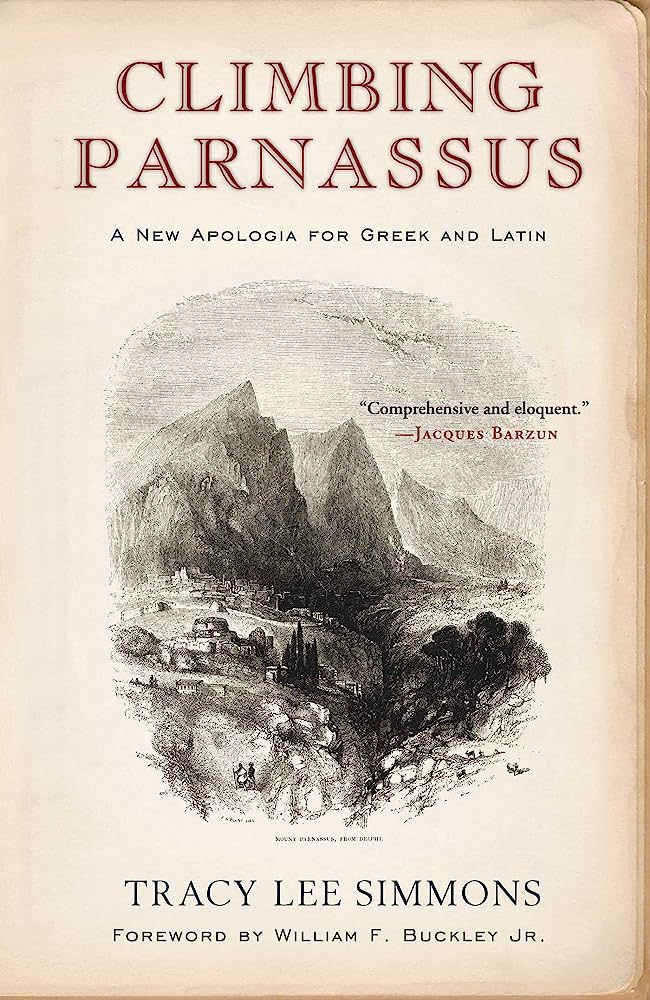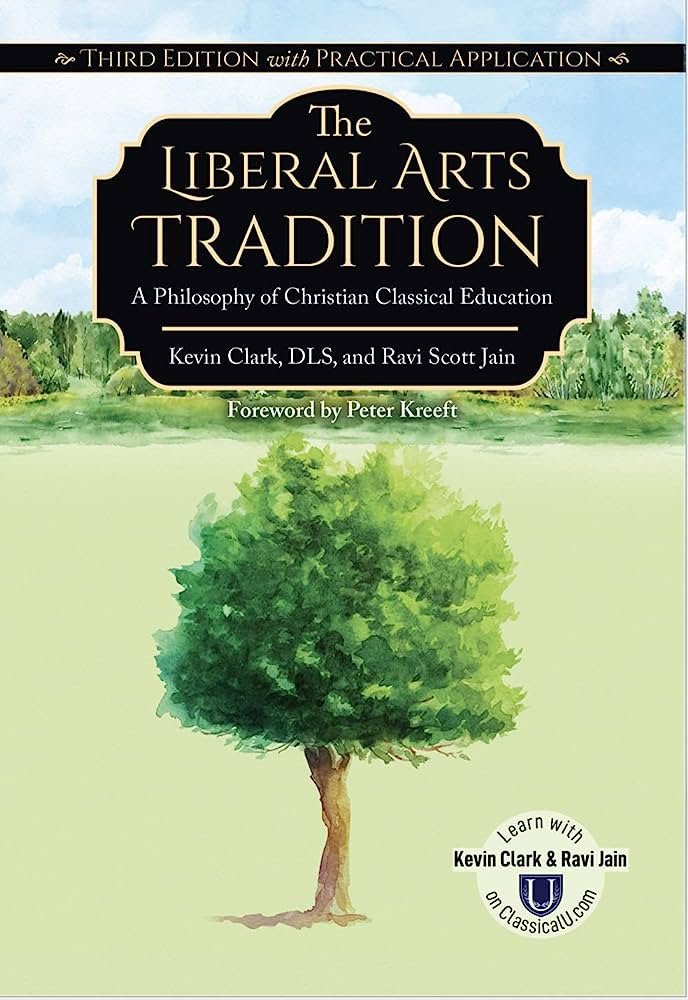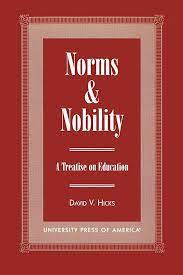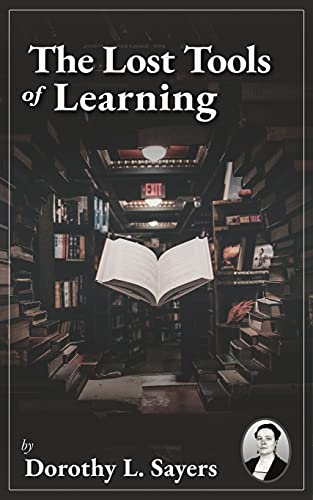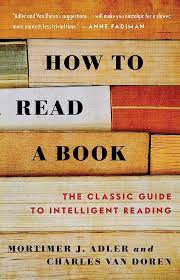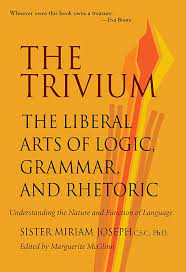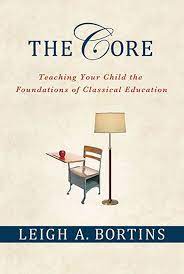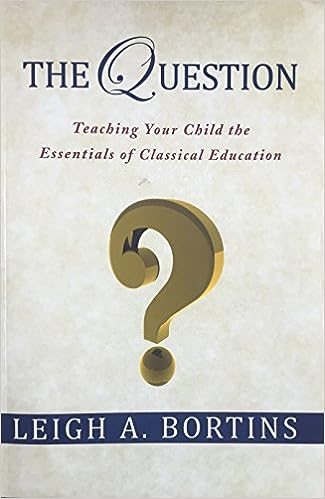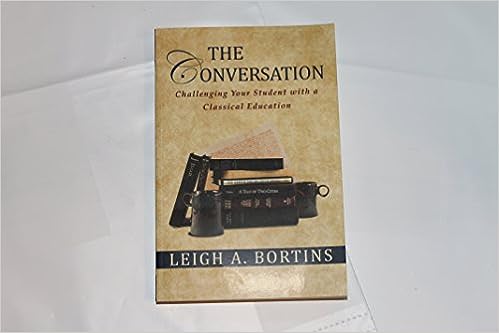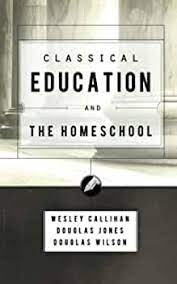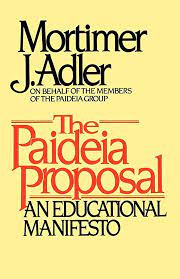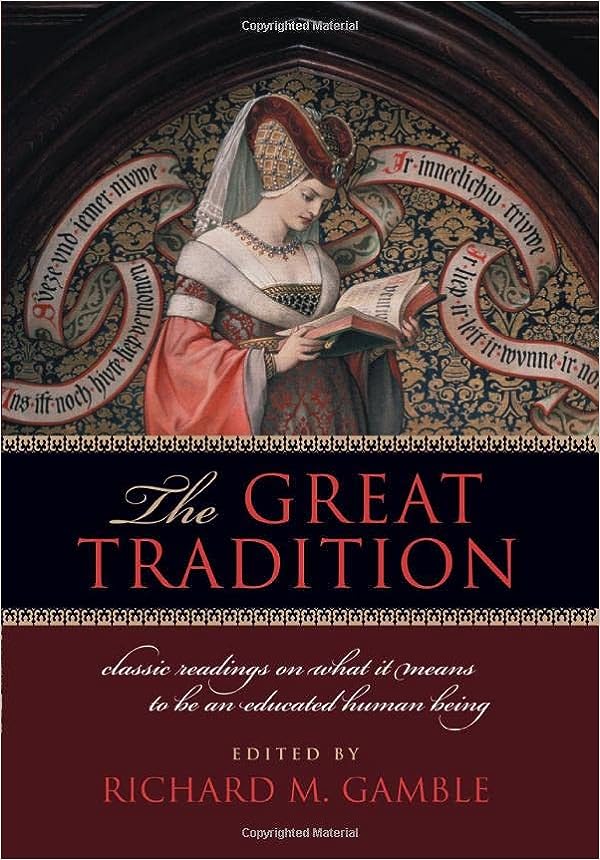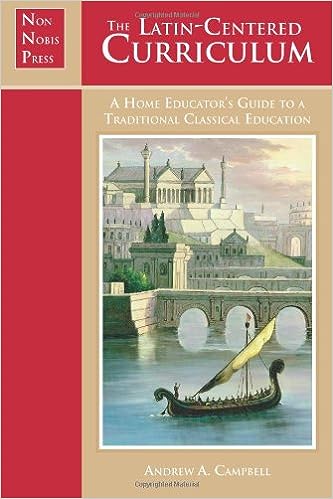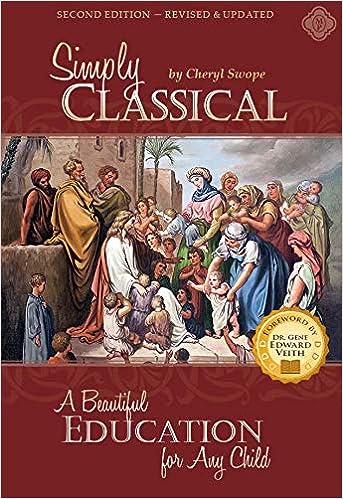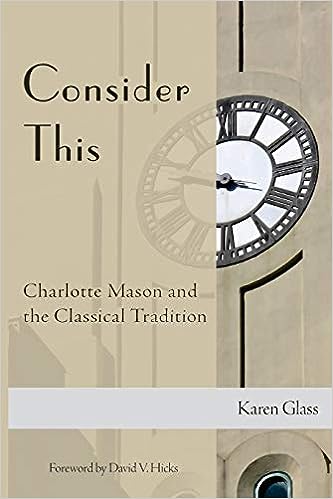CLASSICAL EDUCATION READING
Educational Resources
There has been a lot written about classical education and its methods. Which is good because there are a lot of questions and always something more to learn. Here are just a few books on this topic.
An Introduction to Classical Education
As the title implies, this is a good introduction to the concept of classical education. This is required reading for all co-teachers. Click on the image to read or download a free pdf of this resource.
This forty-five-page booklet is an ideal introduction to classical education that traces the history of classical education and describes its modern renaissance. The booklet also highlights the distinctive elements of the movement, including its emphasis on teaching grammar, logic, and rhetoric (the trivium); the role and benefit of classical language study; and the extraordinary achievements of students who are receiving a classical education. This engaging and conversational booklet includes anecdotes,diagrams, and charts, and is especially recommended to parents just beginning their examination of classical education.
The Well-Trained Mind: A Guide to Classical Education at Home
A comprehensive guide that outlines the stages of classical education and offers practical advice for implementing it at home.
The Well-Trained Mind will instruct you, step by step, on how to give your child an academically rigorous, comprehensive education from preschool through high school―one that will train him or her to read, to think, to understand, to be well-rounded and curious about learning. Veteran home educators Susan Wise Bauer and Jessie Wise outline the classical pattern of education called the trivium, which organizes learning around the maturing capacity of the child’s mind and comprises three stages: the elementary school “grammar stage,” when the building blocks of information are absorbed through memorization and rules; the middle school “logic stage,” in which the student begins to think more analytically; and the high-school “rhetoric stage,” where the student learns to write and speak with force and originality. Using this theory as your model, you’ll be able to instruct your child―whether full-time or as a supplement to classroom education―in all levels of reading, writing, history, geography, mathematics, science, foreign languages, rhetoric, logic, art, and music, regardless of your own aptitude in those subjects.
Climbing Parnassus: A New Apologia for Greek and Latin
This book argues for the importance of studying Latin and Greek as a foundational part of classical education.
In Climbing Parnassus, winner of the 2005 Paideia Prize, Tracy Lee Simmons presents a defense and vindication of the formative power of Greek and Latin. He also shows how these languages have played a crucial role in the development of authentic Humanism, the foundation of the West’s cultural order and America’s understanding of itself as a union of citizens. Simmons’s persuasive witness to the unique, now all-but-forgotten advantages of study in and of the classical languages constitutes a bracing reminder of the genuine aims of a truly liberal education.
The Liberal Arts Tradition (Revised Edition): A Philosophy of Classical Christian Education
A philosophical exploration of classical education, particularly from a Christian perspective.
The Liberal Arts Tradition: A Philosophy of Christian Classical Education introduces readers to a paradigm for understanding a classical education that transcends the familiar 3-stage pattern of grammar, logic, and rhetoric. Instead, this book describes the liberal arts as a central part of a larger and more robust paradigm of classical education that should consist of piety, gymnastic, music, liberal arts, philosophy, and theology. The Liberal Arts Tradition also recovers the means by which classical educators developed more than just intellectual virtue (by means of the 7 liberal arts) but holistically cultivated the mind, body, will, and affections. This is a must-read for educators who want to take a second big step toward recovering the tradition of classical education.
Norms and Nobility: A Treatise on Education
This book delves into the philosophical underpinnings of classical education and its emphasis on cultivating wisdom and virtue.
A reissue of a classic text, Norms and Nobility is a provocative reappraisal of classical education that offers a workable program for contemporary school reform. David Hicks contends that the classical tradition promotes a spirit of inquiry that is concerned with the development of style and conscience, which makes it an effective and meaningful form of education. Dismissing notions that classical education is elitist and irrelevant, Hicks argues that the classical tradition can meet the needs of our increasingly technological society as well as serve as a feasible model for mass education.
The Lost Tools of Learning
An influential essay that discusses the need for a return to classical education methods.
In 1947, Dorothy Sayers first delivered this speech at Oxford University. It has since been republished countless times due to its sheer eloquence and unanswered articulation of the 3 “lost tools” in classical education: grammar, logic, and rhetoric.
How to Read a Book: The Classic Guide to Intelligent Reading
Not exclusively focused on classical education, but a timeless guide to reading and understanding great works of literature.
Originally published in 1940, this book is a rare phenomenon, a living classic that introduces and elucidates the various levels of reading and how to achieve them—from elementary reading, through systematic skimming and inspectional reading, to speed reading. Readers will learn when and how to “judge a book by its cover,” and also how to X-ray it, read critically, and extract the author’s message from the text.
Also included is instruction in the different techniques that work best for reading particular genres, such as practical books, imaginative literature, plays, poetry, history, science and mathematics, philosophy and social science works.
Finally, the authors offer a recommended reading list and supply reading tests you can use measure your own progress in reading skills, comprehension, and speed.
The Trivium: The Liberal Arts of Logic, Grammar, and Rhetoric
An exploration of the three foundational liberal arts subjects that were traditionally taught in classical education.
A liberal artist seeks the perfection of the human faculties. The liberal artist begins with the language arts, the trivium, which is the basis of all learning because it teaches the tools for reading, writing, speaking, and listening. Thinking underlies all these activities. Many readers will recognize elements of this book: parts of speech, syntax, propositions, syllogisms, enthymemes, logical fallacies, scientific method, figures of speech, rhetorical technique, and poetics. The Trivium, however, presents these elements within a philosophy of language that connects thought, expression, and reality.
“Trivium” means the crossroads where the three branches of language meet. In the Middle Ages and the Renaissance, students studied and mastered this integrated view of language. Regrettably, modern language teaching keeps the parts without the vision of the whole. Inspired by the possibility of helping students “acquire mastery over the tools of learning” Sister Miriam Joseph and other teachers at Saint Mary’s College designed and taught a course on the trivium for all first year students. The Trivium resulted from that noble endeavor.
The Core: Teaching Your Child the Foundations of Classical Education
A practical guide for parents on how to incorporate classical education principles into their homeschooling or supplemental education.
In the past, correct spelling, the multiplication tables, the names of the state capitals and the American presidents were basics that all children were taught in school. Today, many children graduate without this essential knowledge. Most curricula today follow a haphazard sampling of topics with a focus on political correctness instead of teaching students how to study. Leigh Bortins, a leading figure in the homeschooling community, is having none of it. She believes that there are core areas of knowledge that are essential to master. Without knowing the multiplication tables, children can’t advance to algebra. Without mastery of grammar, students will have difficulty expressing themselves. Without these essential building blocks of knowledge, students may remember information but they will never possess a broad and deep understanding of how the world works. In this book, Bortins gives parents the tools and methodology to implement a rigorous, thorough, and broad curriculum based on the classical model, including rote memorization to cement knowledge; systematic learning of geography, historical facts, and timelines; reading the great books and seminal historical documents
instead of adaptations and abridged editions; rigorous training in math and the natural sciences.
The Question, Teaching Your Child the Essentials of Classical Education
Leigh A. Bortins’ first book The Core addresses mainly the grammar school. This next book takes a look at the logic school age in the didactic phase of learning.
The Conversation: Challenging Your Student with a Classical Education
Continuing on the heals of Leigh A. Bortins’ first two books The Core and The Question, this book addresses rhetoric stage of learning.
Classical Education and the Homeschool
A book specifically geared towards homeschoolers interested in implementing classical education principles.
As we survey the educational ruins around us, classical and Christian education appears to be an idea whose time has come again. More and more Christian parents are seeing the failures of modern education, and they are hungering for a substantive alternative, one that has been tested before and found to be good.
Classical and Christian education presents them with just such an alternative.
The Paideia Proposal: An Educational Manifesto
A thought-provoking work that advocates for a return to classical education in modern schools.
The Paideia Proposal is a system of liberal education intended for all children. It was a response to what Adler characterized as the United States’ antidemocratic or undemocratic educational system, a holdover from the 19th century, when the understanding of basic human rights fell short of 20th century expectations.
The Paidea Proposal was based upon the following assumptions: 1) All children are educable; 2) Education is never completed in school or higher institutions of learning, but is a lifelong process of maturity for all citizens; 3) The primary cause of learning is the activity of the child’s mind, which is not created by, but only assisted by the teacher; 4) Multiple types learning and teaching must be utilized in education, not just teacher lecturing, or telling; and 5) A student’s preparation for earning a living is not the primary objective of schooling.
Adler stressed that the proposal is much more than just a return to the basic skills of reading, writing and arithmetic. It is not simply a return to the values of classical civilization, but a return to what is of enduring value. It is a democratic proposal intended for the education of all, and not an elitist program as some have alleged.
The Great Tradition: Classic Readings on What It Means to Be an Educated Human Being
A collection of essential texts from the classical tradition that highlight the fundamental aspects of a classical education.
Frustrated with the continuing educational crisis of our time, concerned parents, teachers, and students sense that true reform requires more than innovative classroom technology, standardized tests, or skills training. An older tradition—the Great Tradition—of education in the West is waiting to be heard.
Since antiquity, the Great Tradition has defined education first and foremost as the hard work of rightly ordering the human soul, helping it to love what it ought to love, and helping it to know itself and its maker. In the classical and Christian tradition, the formation of the soul in wisdom, virtue, and eloquence took precedence over all else, including instrumental training aimed at the inculcation of “useful” knowledge.
Edited by historian Richard Gamble, this anthology reconstructs a centuries-long conversation about the goals, conditions, and ultimate value of true education. Spanning more than two millennia, from the ancient Greeks to contemporary writers, it includes substantial excerpts from more than sixty seminal writings on education. Represented here are the wisdom and insight of such figures as Xenophon, Plato, Aristotle, Seneca, Cicero, Basil, Augustine, Hugh of St. Victor, Bonaventure, Thomas Aquinas, Martin Luther, John Calvin, Erasmus, Edmund Burke, John Henry Newman, Thomas Arnold, Albert Jay Nock, Dorothy Sayers, C. S. Lewis, and Eric Voegelin.
The Latin-Centered Curriculum: A Home Educator’s Guide to a Classical Education
Focuses on the importance of Latin in classical education and how it can serve as a foundation for other subjects.
From Cicero to C. S. Lewis, from Thomas Aquinas to Thomas Jefferson, the great minds of the West have been formed by a classical curriculum centered on Latin and Greek. Now you can give your children a traditional classical education at home with The Latin-Centered Curriculum. In a clear and readable introduction, The Latin Centered Curriculum surveys the history of classical education from the ancient Greeks through the 20th-century neoclassical revival. He demonstrates the central position of Latin in the traditional course of study and outlines the many benefits of placing the classical languages at the heart of the curriculum. Then he shares with you the secret of a superior education: multum non multa- not quantity, but quality. With helpful charts and detailed explanations, The Latin-Centered Curriculum guides you step by step with book and curriculum recommendations for each school subject from K-12. It shows you how focusing a few core disciplines-classical languages, mathematics, and composition-can revolutionize your home school. The best education is simple but deep.
Simply Classical: A Beautiful Education for Any Child
This book comes highly recommended for families with students who have special needs.
This revolutionary book guides parents, teachers, and schools in implementing the beauty of a classical education with all children, including those with special needs. This second edition provides updated resources, more strategies, streamlined prose, an extra chapter, an enhanced appendix, and new stories to delight, encourage, and inform the reader.
Consider This: Charlotte Mason and the Classical Tradition
The educators of ancient Greece and Rome gave the world a vision of what education should be. The medieval and Renaissance teachers valued their insights and lofty goals. Christian educators such as Augustine, Erasmus, Milton, and Comenius drew from the teaching of Plato, Aristotle, and Quintilian those truths which they found universal and potent. Charlotte Mason developed her own philosophy of education from the riches of the past, not accidentally but purposefully. She and the other founding members of the Parents’ National Educational Union in England were inspired by the classical educators of history and set out to achieve their vision in modern education. They succeeded—and thanks to Charlotte Mason’s clear development of methods to realize the classical ideals, we can partake of the classical tradition as well.
The classical tradition as it informs teaching is good not because it is old or “classical,” but because it works; and what works, whether old or new, is best. That’s the Mason message admirably conveyed by [Karen] Glass. —David V. Hicks
Classical education is an education of the heart and conscience as much as it is an education of the mind. This book explores the classical emphasis on formation of character and links Charlotte Masons ideas to the thinkers of the past. This is not a “how to” book about education, but a “why to” book that will bring clarity to many of the ideas you already know about teaching and learning.
